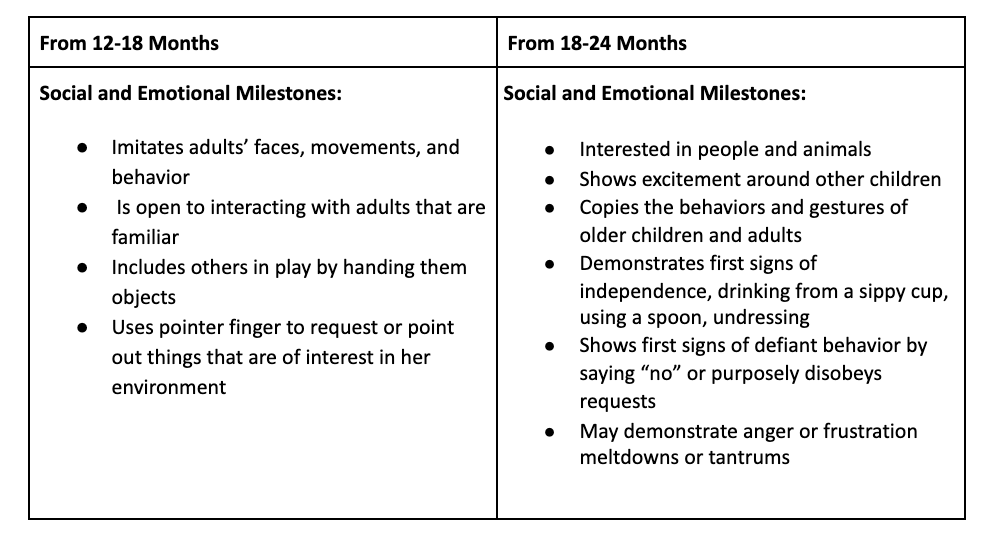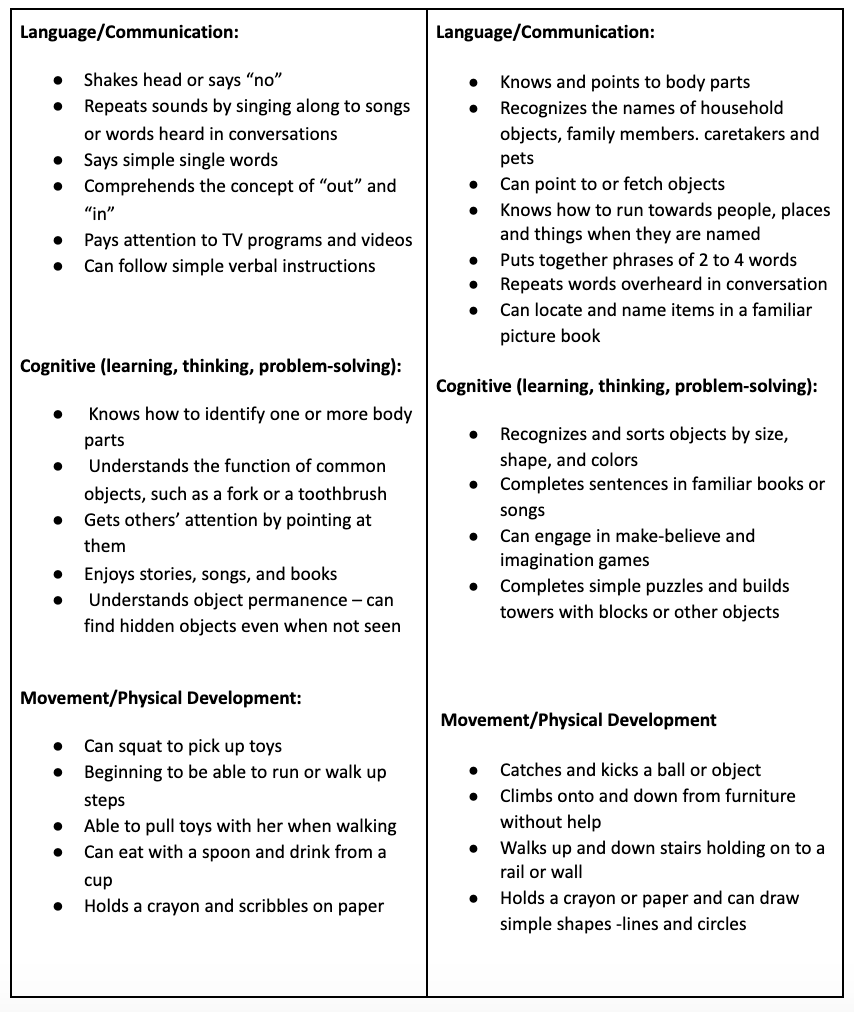Just when you’ve gotten the hang of parenting a baby, your little one turns into a toddler and you’re faced with new challenges and joys. It’s important to keep in mind that a baby’s development stages are quite a bit more predictable than those of a toddler. There is a whole range of skills to look for and track with your child now, including cognitive, social, emotional, communication, and motor skills and abilities.
What defines a toddler?
The toddler stage is defined as the period from 12 to 36 months. During this stage, most children learn to walk, talk, leave their diapers, and interact with others. This period is also when a child’s unique personality, capabilities, and interests begin to emerge. Whereas babies tend to develop in a fairly standard and predictable manner, toddler milestones may vary greatly in timing and order. Some kids will reach milestones very early on, while other children might reach the same milestones much later. Most of the time, these variations are not a cause for concern. However, if a parent detects consistent delays across a range of developmental milestones, it’s best to consult with a professional.
What are the milestones to watch for?
This is what you can expect your child to achieve during their second year of life.


How to interpret and use milestones
It’s important for parents to remember that the establishment of child development milestones is not an exact science since they are based on “averages”. By definition, averages take into account a wide range of development patterns including “outliers” who show very early or very late milestone achievement.
“Average” does not necessarily equate with “normal” so, while it’s always good to encourage and boost development with early stimulation activities and games, it’s best to avoid over-stimulating or rushing your little one to reach certain milestones if they’re not ready for them. Keep in mind that each child’s unique situation, including genetics, environment, and personality, also plays a part in determining when toddlers will hit each milestone.
Parents shouldn’t stress about exact dates and orders as long as their toddler is showing continuous progress across a range of milestones. That said, tracking, monitoring, and recording developmental milestones are just as important as tracking physical growth. Your records will also provide a guide to recognizing the signs of atypical development in order to intervene or treat issues if required.








